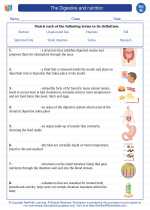Research
Research is a systematic and organized process of investigating and analyzing information to increase our understanding of a topic or to solve a problem. It involves gathering, analyzing, and interpreting data to answer questions or test hypotheses.
Types of Research
There are two main types of research:
- Quantitative Research: Involves collecting and analyzing numerical data to understand patterns and relationships.
- Qualitative Research: Involves gathering and interpreting non-numeric data to gain insights into people's attitudes, behaviors, and experiences.
Steps in the Research Process
The research process typically involves the following steps:
- Identifying the Research Question: Defining the specific question or problem that the research aims to address.
- Reviewing Existing Literature: Examining previous studies and literature on the topic to build a foundation for the research.
- Designing the Study: Planning the methodology, data collection techniques, and analysis methods.
- Collecting Data: Gathering relevant information through experiments, surveys, observations, or other methods.
- Analyzing Data: Processing and interpreting the collected data to draw meaningful conclusions.
- Drawing Conclusions: Summarizing the findings and determining implications for the research question.
- Communicating Results: Sharing the research outcomes through reports, presentations, or publications.
Ethical Considerations in Research
Researchers must adhere to ethical principles when conducting studies, including obtaining informed consent from participants, protecting confidentiality, and ensuring the well-being of subjects.
Research Skills
Key skills for conducting research include critical thinking, problem-solving, data analysis, communication, and the ability to use research tools and technology effectively.
Study Tips
When studying research, it's helpful to:
- Review the steps of the research process and understand the purpose of each step.
- Practice analyzing research studies to identify the type of research, research question, methodology, and findings.
- Explore ethical considerations in research and understand the importance of ethical guidelines.
- Develop critical thinking skills through analyzing and discussing research articles.
- Utilize research tools and technology to gain hands-on experience in conducting research.
[Research] Related Worksheets and Study Guides:
.◂Science Worksheets and Study Guides Eighth Grade. The Digestive System & Nutrition
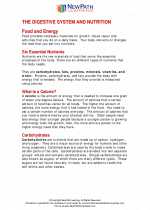
 Worksheet/Answer key
Worksheet/Answer key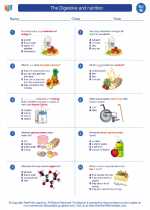
 Worksheet/Answer key
Worksheet/Answer key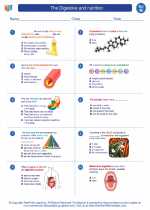
 Worksheet/Answer key
Worksheet/Answer key
 Vocabulary/Answer key
Vocabulary/Answer key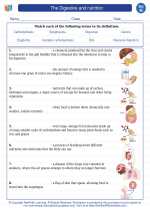
 Vocabulary/Answer key
Vocabulary/Answer key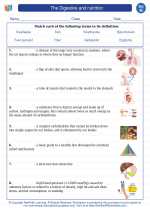
 Vocabulary/Answer key
Vocabulary/Answer key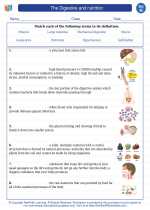
 Vocabulary/Answer key
Vocabulary/Answer key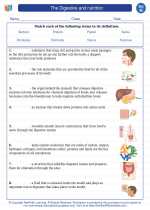
 Vocabulary/Answer key
Vocabulary/Answer key